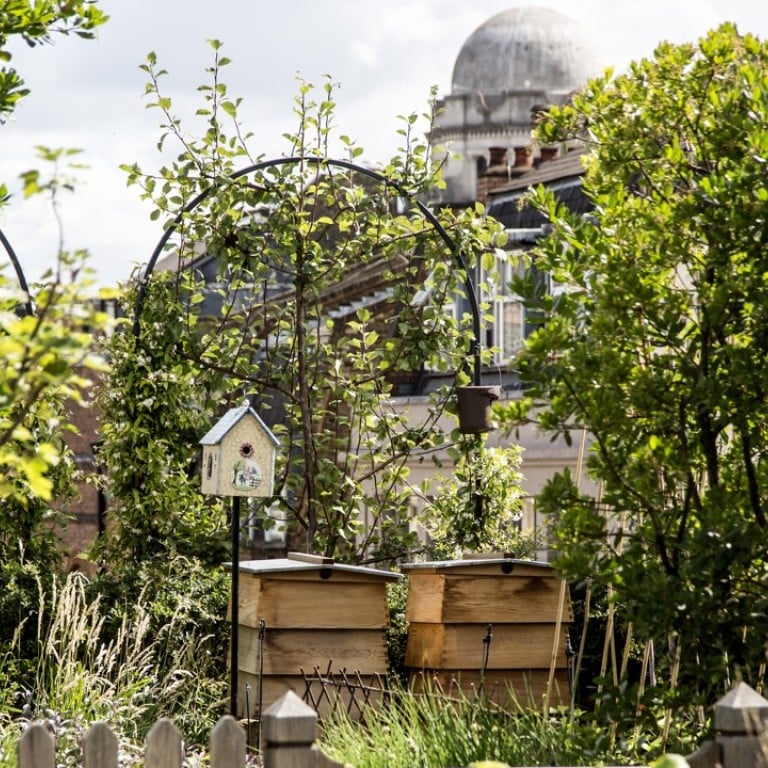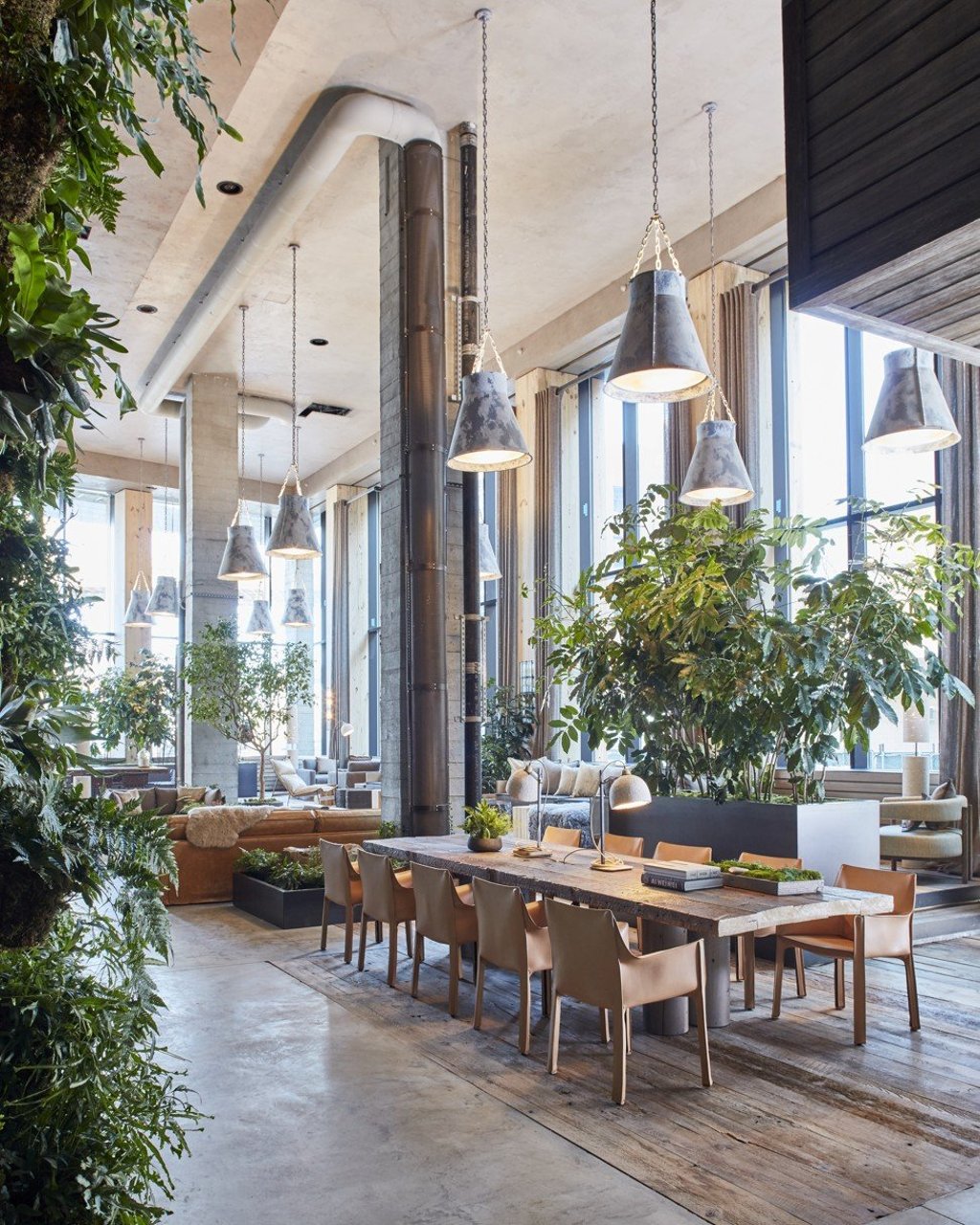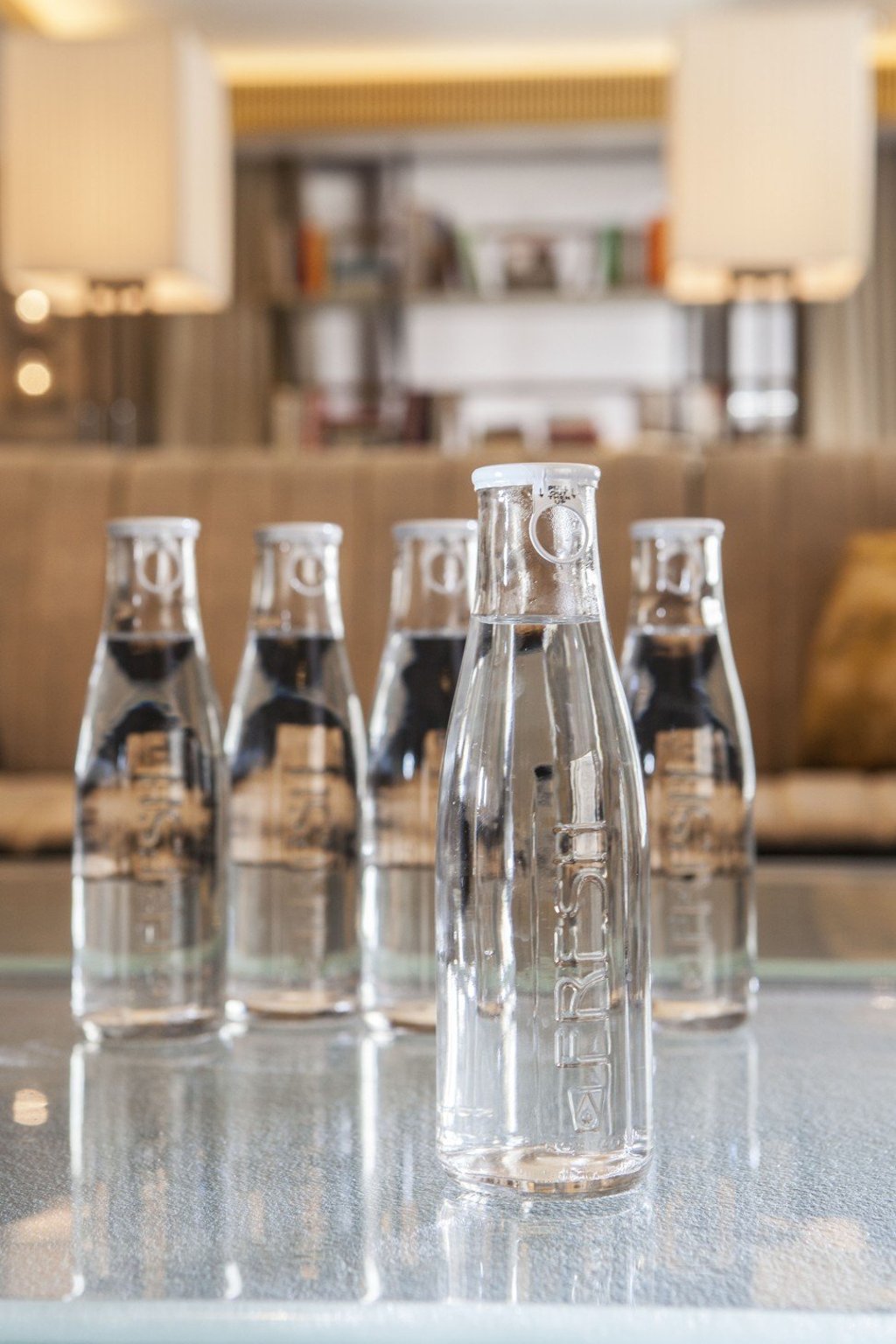What are luxury hotels doing to save the environment?

The first move is to reduce the use of plastic, such as switching to glass bottles
With their beautiful amenities and extravagant goodies, luxury hotels do not immediately conjure up visions of sustainability. But the fact is that luxury hotels have been adopting sustainable measures for the last 15 years or so. With environmental issues surging globally, some luxury hotels are making their efforts more visible, communicable, effective and relevant.
Reducing waste, particularly single-use plastics, is on top of the agenda. New York’s 1 Hotel Brooklyn Bridge offers in-room filtered water dispensers – sleek black machines that accentuate the property’s décor. London’s Kit Kemp-designed Ham Yard Hotel (of Firmdale Hotels) has been replacing plastic items with plant-based alternatives. Meanwhile, the Maldives property of the Six Senses luxury hotel and resort chain recently won a Green Hotelier award for its initiatives to reduce waste, energy and water consumption; its support for its local community, and its communication of its efforts to guests. The property also implements a water-filtration system that led to the elimination of 1.09 million plastic bottles in 2017. In Hong Kong, the Landmark Mandarin Oriental now offers water in glass bottles that are filtered on its premises.
Certification is a holistic route to better practices for some of these hotels. These complex and esoteric rating systems are hard to achieve, but for new hotels such as the LEED-certified 1 Hotel Brooklyn Bridge, they present an excellent opportunity for properties to build their businesses the right way from the ground up.
The LEED addresses construction, operations, design and maintenance. At 1 Hotel Brooklyn Bridge, certification has also led to more visible and relatable aspects, such as the recycling of pine flooring from an old distillery and live greenery throughout the property.
Pursuing certifications has also served a dual purpose for London’s Ham Yard Hotel. “It ensured we were not only compliant in terms of reducing our carbon footprint, but also prompted us to re-evaluate all areas of our business,” says the hotel’s general manager, Laura Sharpe.
It ensured we were not only compliant in terms of reducing our carbon footprint, but also prompted us to re-evaluate all areas of our business
Even so, some hotels can face obstacles to moving faster and doing better. Keeping up with guest expectations is a big factor when luxury brands are inherently tied to providing consistent experiences, hoteliers say. “Technology that enables the production of sustainable products hasn’t always been available to achieve the results we would have liked, without compromising on the quality our customers and guests have come to expect,” Sharpe says, citing her hotel’s own search for a plant-based plastic manufacturer for its bath-product collections.
Even when sound efforts are made, learning to communicate and measure them is an evolving challenge. Archie Keswick, general manager of the Landmark Mandarin Oriental, says it is important that the hotel communicates its rationale for the introduction of filtered water, in order to avoid the assumption that it is merely a cost-saving measure. For example, the hotel now raises awareness of plastic-waste issues through installations such as a Christmas tree made of 500 plastic bottles (to match the hotel’s daily consumption before it filtered water).

